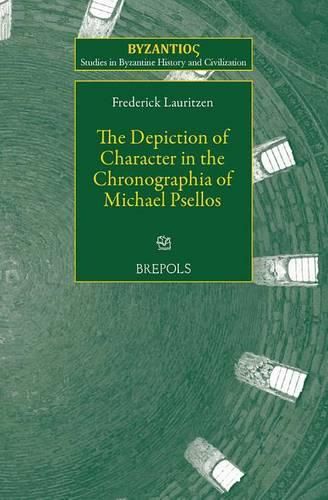Readings Newsletter
Become a Readings Member to make your shopping experience even easier.
Sign in or sign up for free!
You’re not far away from qualifying for FREE standard shipping within Australia
You’ve qualified for FREE standard shipping within Australia
The cart is loading…






Character is the single most important feature of the Chronographia written by Michael Psellos (1018-1081?). It is an historical account of the events at court from the time of Basil II (986-1025) to Michael VII Doukas (1071-1078) with the insight of someone whose career developed within the imperial court and his unsurpassed eye for details of personality was enlightened by his intellectual interests. During his lifetime, Psellos was considered the forefront of philosophical studies in the capital and therefore was named consul of philosophers in 1047 and he credited himself with reintroducing Plato on the cultural scene of Constantinople. It was his attractive manner of speech which led him to remain in the emperor’s presence and his rhetorical ability also plays an important role in the Chronographia, especially when he emphasizes or fabricates events to justify his understanding of a person’s mind. Many have employed Psellos’ Chronographia for its value in shedding light on historic events, itself important, though it often neglects the fact that Psellos’ historiography is not based on factual details to explain multiple causes for events, but seeks to attribute blame or merit to the personality of the ruling emperor.
$9.00 standard shipping within Australia
FREE standard shipping within Australia for orders over $100.00
Express & International shipping calculated at checkout
Character is the single most important feature of the Chronographia written by Michael Psellos (1018-1081?). It is an historical account of the events at court from the time of Basil II (986-1025) to Michael VII Doukas (1071-1078) with the insight of someone whose career developed within the imperial court and his unsurpassed eye for details of personality was enlightened by his intellectual interests. During his lifetime, Psellos was considered the forefront of philosophical studies in the capital and therefore was named consul of philosophers in 1047 and he credited himself with reintroducing Plato on the cultural scene of Constantinople. It was his attractive manner of speech which led him to remain in the emperor’s presence and his rhetorical ability also plays an important role in the Chronographia, especially when he emphasizes or fabricates events to justify his understanding of a person’s mind. Many have employed Psellos’ Chronographia for its value in shedding light on historic events, itself important, though it often neglects the fact that Psellos’ historiography is not based on factual details to explain multiple causes for events, but seeks to attribute blame or merit to the personality of the ruling emperor.